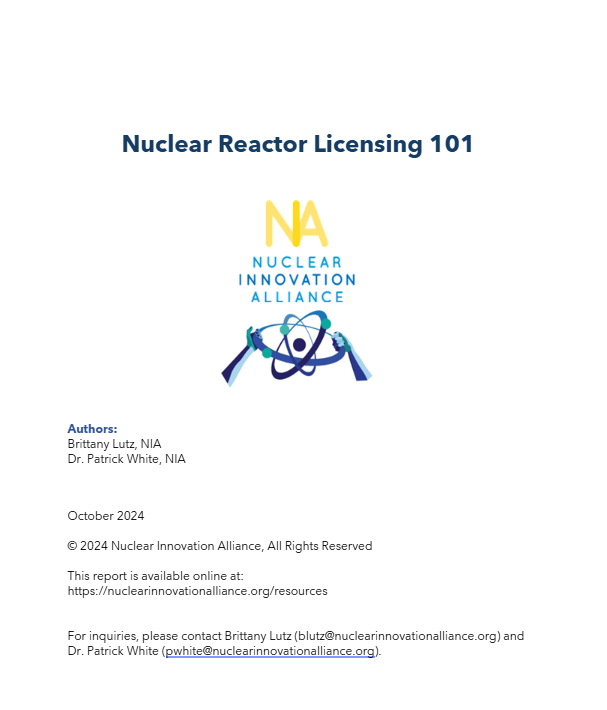
The successful deployment of advanced nuclear energy requires ensuring safety, security, and environmental protection through responsible commercial operations and effective regulation. The U.S. Nuclear Regulatory Commission (NRC) is responsible for the licensing of nuclear reactors in the United States and conducts a comprehensive review of all stages of nuclear power operations, from initial site selection and nuclear materials handling to decommissioning. While the NRC licensing process may seem complex, understanding it is vital for both public and private stakeholders.
NIA’s new report “Licensing 101” by Program Manager Brittany Lutz and Research Director Patrick White aims to demystify the reactor licensing process by providing an overview of the existing regulatory framework governing nuclear reactors. This paper describes how the NRC licensing process works for new nuclear reactors and demonstrates how continual improvements to the licensing process and adaptation to emerging technological developments will allow the NRC to better facilitate the rapid deployment of advanced nuclear technologies